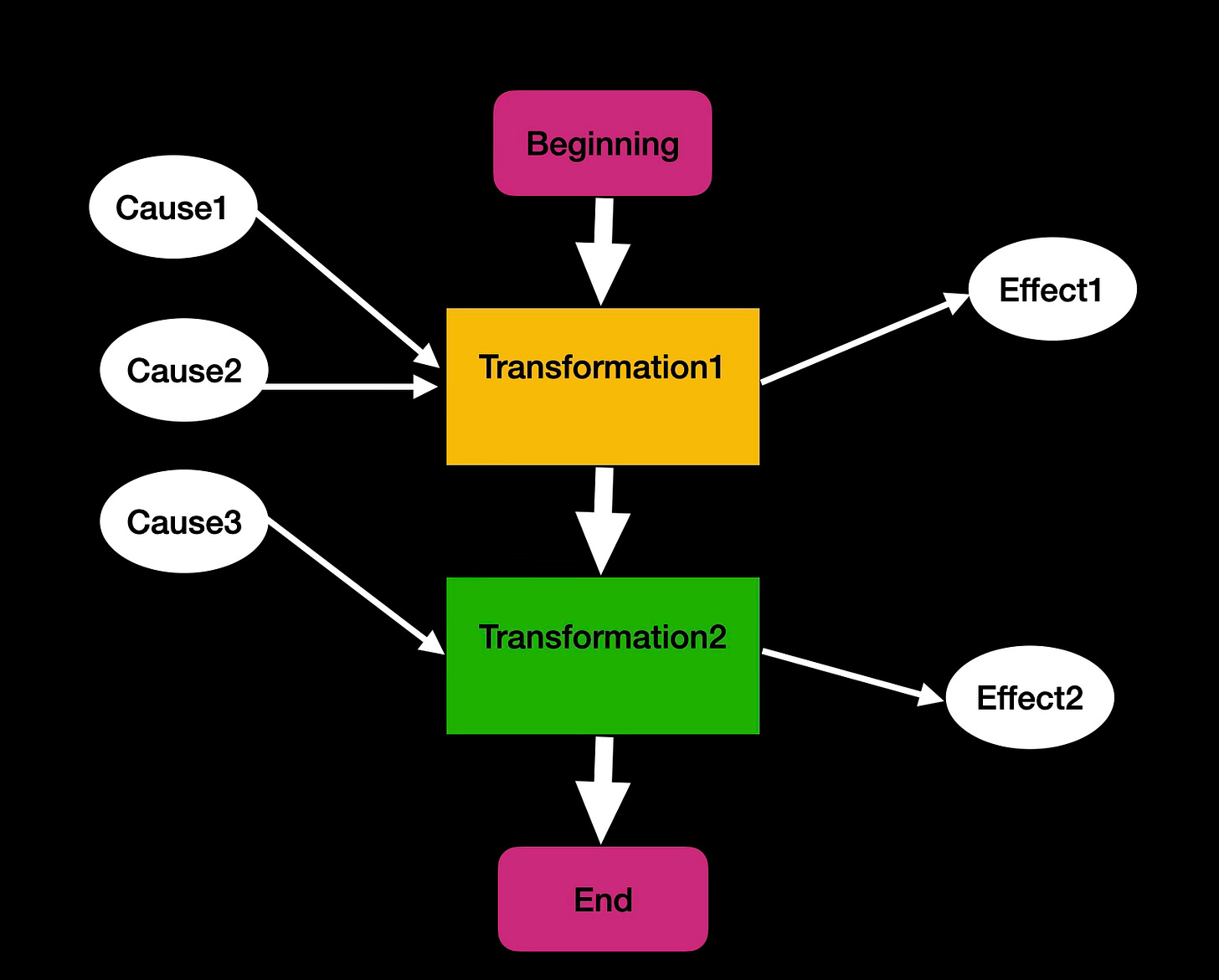Understanding Teleology: Purpose and Design in Philosophy and Religion
Did you think that We created you in vain, and that to Us you would not be returned? (Quran 23:15)
Teleology is a fundamental concept in philosophy that examines purpose, goal, or design of an entity or a phenomenon. Teleology seeks to understand the final cause or purpose of an entity or a phenomenon beyond the apparent causal interaction as part of a purposeful progression toward an end. This concept has shaped Western thought for centuries and also resonates deeply with ideas in Islamic thoughts and theology.
Teleology is derived from the Greek words telos (end or purpose) and logos (study or explanation), teleology explores the idea that everything has a final cause or purpose. It contrasts with mechanistic views, which explain phenomena solely through cause-and-effect relationships without considering their end goals.
In modern era, concepts of Teleology has been applied to various fields. Some examples include:
Biological Teleology: Understanding organs or systems based on their functions, such as "the heart exists to pump blood."
Ethical Teleology: Actions are judged by their outcomes or purposes, as seen in utilitarianism.
Cosmological Teleology: The belief that the universe is guided by an overarching purpose or divine design.
Many philosophers have contemplated and written on Teleology. Some of them include:
Aristotle's Four Causes
Aristotle (384–322 BCE) was one of the earliest proponents of teleology. He argued that understanding any phenomenon requires exploring its four causes:
Material Cause: What it is made of (e.g., wood for a table).
Efficient Cause: How it came to be (e.g., the carpenter).
Formal Cause: Its structure or design (e.g., the blueprint).
Final Cause: Its purpose or end (e.g., to provide a surface for dining).
For Aristotle, the final cause was paramount. For instance, an acorn’s purpose is to grow into an oak tree.
Immanuel Kant and Teleology
Kant distinguished between mechanical explanations and teleological ones. He argued that while nature operates mechanically, living organisms appear to have intrinsic purposes. For instance, a tree’s growth and reproduction suggest internal purposiveness.
Hegel’s Teleological View of History
Hegel proposed a teleological understanding of history, where the dialectical process drives humanity toward freedom and self-consciousness. History, for Hegel, is not random but purposeful, with each stage contributing to the realization of rationality.
Teleology in Islamic Thought
Teleology is deeply embedded in Islamic philosophy and theology, often linked to the belief in divine wisdom and purpose in creation. Many Muslim philosophers and theologians have contributed to teleological discussions, integrating them with Islamic concepts of God and the universe.
1. The Qur'an and Teleology
The Qur’an frequently emphasizes that the universe and everything within it is created with a purpose (hikmah). For example:
Creation of Humanity: "Did you think that We created you in vain, and that to Us you would not be returned?" (Surah Al-Mu'minun, 23:115).
Order in Nature: "He created the heavens and the earth in truth and perfected your forms; and to Him is the [final] destination" (Surah At-Taghabun, 64:3).
Emphasis on Life after death: “He created the sun and the moon, each running its course for a specified term. He manages all things; He makes the signs clear so that you may be certain of meeting your Lord”
These verses highlight a teleological worldview, where all creation serves a greater divine plan. The purpose of human being is to live a life in accordance with the guidance of the creator despite earthly temptation to attain the blissful afterlife.
2. Al-Farabi and Avicenna
Muslim philosophers like Al-Farabi and Avicenna (Ibn Sina) adopted and expanded Aristotle’s teleology. They argued that the universe operates under a divine purpose, with everything moving toward perfection. Avicenna, for instance, saw human intellect and virtue as teleological ends, aligned with the soul’s journey back to its divine source.
3. Al-Ghazali’s Critique and Synthesis
While Al-Ghazali critiqued certain philosophical interpretations of causality, he maintained that God’s creation is purposeful. He emphasized that events in the universe are not random but unfold according to divine will and wisdom, ensuring harmony and justice.
4. Ibn Khaldun’s Historical Teleology
Ibn Khaldun’s Muqaddimah presents a teleological view of human society. He argued that civilizations rise and fall according to a natural cycle, driven by human behavior and societal needs. This cyclical view reflects an underlying purpose: the evolution and refinement of human organization and governance.
Islamic Ethics
In contemporary Islamic thought, teleology continues to shape ethical, social, and scientific discussions. For example:
Bioethics: Decisions about medical interventions are often guided by teleological considerations, such as preserving life as a divinely entrusted purpose.
Environmental Stewardship: Islamic teachings on stewardship (khalifah) are rooted in the teleological idea that humans are created to care for the earth.
Social Justice: Teleological perspectives inform the pursuit of justice, as the Qur'an emphasizes fairness and equity as ultimate goals.
To summarize, Teleology offers a lens to understand the purpose and design behind phenomena, bridging philosophical inquiry and theological insight. From Aristotle’s causes to Hegel’s historical dialectics, teleology has profoundly influenced Western thought. In the Islamic tradition, teleology is equally vital, underscoring the divine purpose in creation and guiding ethical and societal frameworks. Whether in ancient philosophy or modern applications, teleology remains a powerful tool for exploring the meaning and direction of existence.
For articles on Liberal sciences, please subscribe to: mineglobal.substack.com





